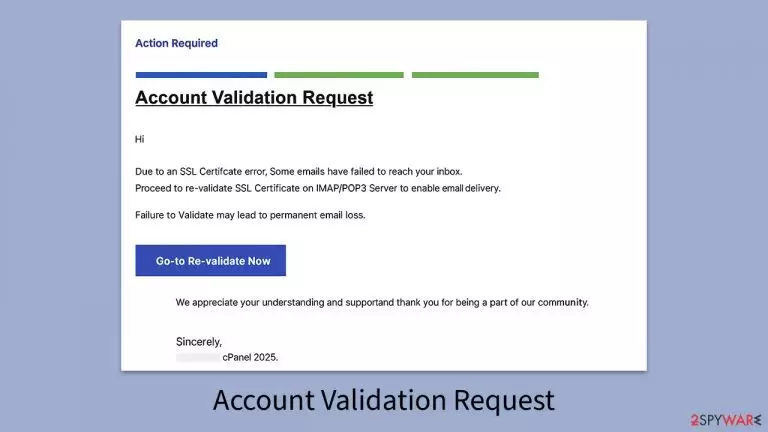The Pride
link Beverly Hills Senior Scammed Out of $59K; Richmond Man Charged in Fraud Scheme
— Multiple charges have been leveled at a Richmond, California man accused of defrauding an elderly Beverly Hills resident out of $59,000 by posing as both a bank employee and a federal agent, according to a press release from the Beverly Hills Police Department.
The scam unfolded on July 1, 2025, when members of an organized crime group allegedly told the victim his bank accounts were compromised by a “virus” or “hack” on his electronic devices.
Beverly Hills Senior Scammed Out of $59K; Richmond Man Charged in Fraud Scheme
— Multiple charges have been leveled at a Richmond, California man accused of defrauding an elderly Beverly Hills resident out of $59,000 by posing as both a bank employee and a federal agent, according to a press release from the Beverly Hills Police Department.
The scam unfolded on July 1, 2025, when members of an organized crime group allegedly told the victim his bank accounts were compromised by a “virus” or “hack” on his electronic devices.
Olivia Morelli 2-Spyware
link Account Validation Request email scam (fake) - Free Instructions
— A new phishing campaign is making the rounds under the guise of an “Account Validation Request” notice. The email claims there’s an issue with your email account’s SSL certificate and urges you to “re-validate” it to prevent permanent email loss. It’s designed to sound urgent and technical so recipients act without thinking.
Account Validation Request email scam (fake) - Free Instructions
— A new phishing campaign is making the rounds under the guise of an “Account Validation Request” notice. The email claims there’s an issue with your email account’s SSL certificate and urges you to “re-validate” it to prevent permanent email loss. It’s designed to sound urgent and technical so recipients act without thinking.
BuzzFeed Contributor
link A New Email Scam Is ShShockingly Realistic, Here's Everything You Need To Know About Protecting Yourself
— An email hits your inbox from an unknown sender that includes a picture of your house and address, followed by a threat: “Don’t even try to hide from this. You have no idea what I’m capable of….I’ve got footage of you doing embarrassing things in your house (nice setup, by the way).”
A New Email Scam Is ShShockingly Realistic, Here's Everything You Need To Know About Protecting Yourself
— An email hits your inbox from an unknown sender that includes a picture of your house and address, followed by a threat: “Don’t even try to hide from this. You have no idea what I’m capable of….I’ve got footage of you doing embarrassing things in your house (nice setup, by the way).”
PhoolPhisher
link Beware of Democratic Party Scams
— Political email phishing scams are designed to take advantage of heightened political activity and voter passion. They often mimic legitimate political campaigns, parties, or official government bodies to steal personal information, money, or to spread misinformation.
Beware of Democratic Party Scams
— Political email phishing scams are designed to take advantage of heightened political activity and voter passion. They often mimic legitimate political campaigns, parties, or official government bodies to steal personal information, money, or to spread misinformation.
PhoolPhisher
link Think Before You Click: The “Unsubscribe” Trap
— Never give scammers a thumbs-up by clicking unsubscribe.
Think Before You Click: The “Unsubscribe” Trap
— Never give scammers a thumbs-up by clicking unsubscribe.
PhoolPhisher
link Netflix Payment Method Scam
— Phishing scams targeting Netflix subscribers often use emails or texts that appear to be from the company. These messages create a sense of urgency, claiming there's a problem with your account, such as a billing issue or an expired membership. They trick you into clicking a link that leads to a fake Netflix website designed to steal your personal information, including login credentials and credit card details. The scam is successful because the fraudulent emails often look very authentic, but red flags include a generic greeting, a sense of urgency, and a URL that doesn't belong to the official Netflix domain.
Netflix Payment Method Scam
— Phishing scams targeting Netflix subscribers often use emails or texts that appear to be from the company. These messages create a sense of urgency, claiming there's a problem with your account, such as a billing issue or an expired membership. They trick you into clicking a link that leads to a fake Netflix website designed to steal your personal information, including login credentials and credit card details. The scam is successful because the fraudulent emails often look very authentic, but red flags include a generic greeting, a sense of urgency, and a URL that doesn't belong to the official Netflix domain.
Los Alamos Daily Post
link Watch Out for Workplace Imposters
— Watch out for "Business Email Compromise" Phishing Scams - where cybercriminals email you pretending to be an out of the office colleague that needs your help with something (usually a fraudulent payment) urgently.
Watch Out for Workplace Imposters
— Watch out for "Business Email Compromise" Phishing Scams - where cybercriminals email you pretending to be an out of the office colleague that needs your help with something (usually a fraudulent payment) urgently.
PhoolPhisher
link A Scam Email Dissected
— Scam emails are becoming increasingly sophisticated, but many still follow recognizable patterns. Let's examine a recent scam email that claims to offer a $500 Costco reward for completing a 30-second survey and explore the red flags and takeaways to help you protect yourself.
A Scam Email Dissected
— Scam emails are becoming increasingly sophisticated, but many still follow recognizable patterns. Let's examine a recent scam email that claims to offer a $500 Costco reward for completing a 30-second survey and explore the red flags and takeaways to help you protect yourself.
Kerpa News
link Online scams target immigrants without legal status as deportation fears linger
— Jose is a Venezuelan national living in North Texas who has been preparing for his asylum hearing scheduled for July. Last week, he received an email he thought was from U.S. Citizenship and Immigration Services notifying him his hearing had been moved up almost two months.
It read: “The United States Citizenship and Immigration Services informs you that your virtual hearing had been scheduled for May 9, 2025 at 5:00 p.m., New York local time.”
“It caught me by surprise because I wasn’t expecting this,” Jose – who asked to only use his first name -- said in Spanish.
Online scams target immigrants without legal status as deportation fears linger
— Jose is a Venezuelan national living in North Texas who has been preparing for his asylum hearing scheduled for July. Last week, he received an email he thought was from U.S. Citizenship and Immigration Services notifying him his hearing had been moved up almost two months.
It read: “The United States Citizenship and Immigration Services informs you that your virtual hearing had been scheduled for May 9, 2025 at 5:00 p.m., New York local time.”
“It caught me by surprise because I wasn’t expecting this,” Jose – who asked to only use his first name -- said in Spanish.